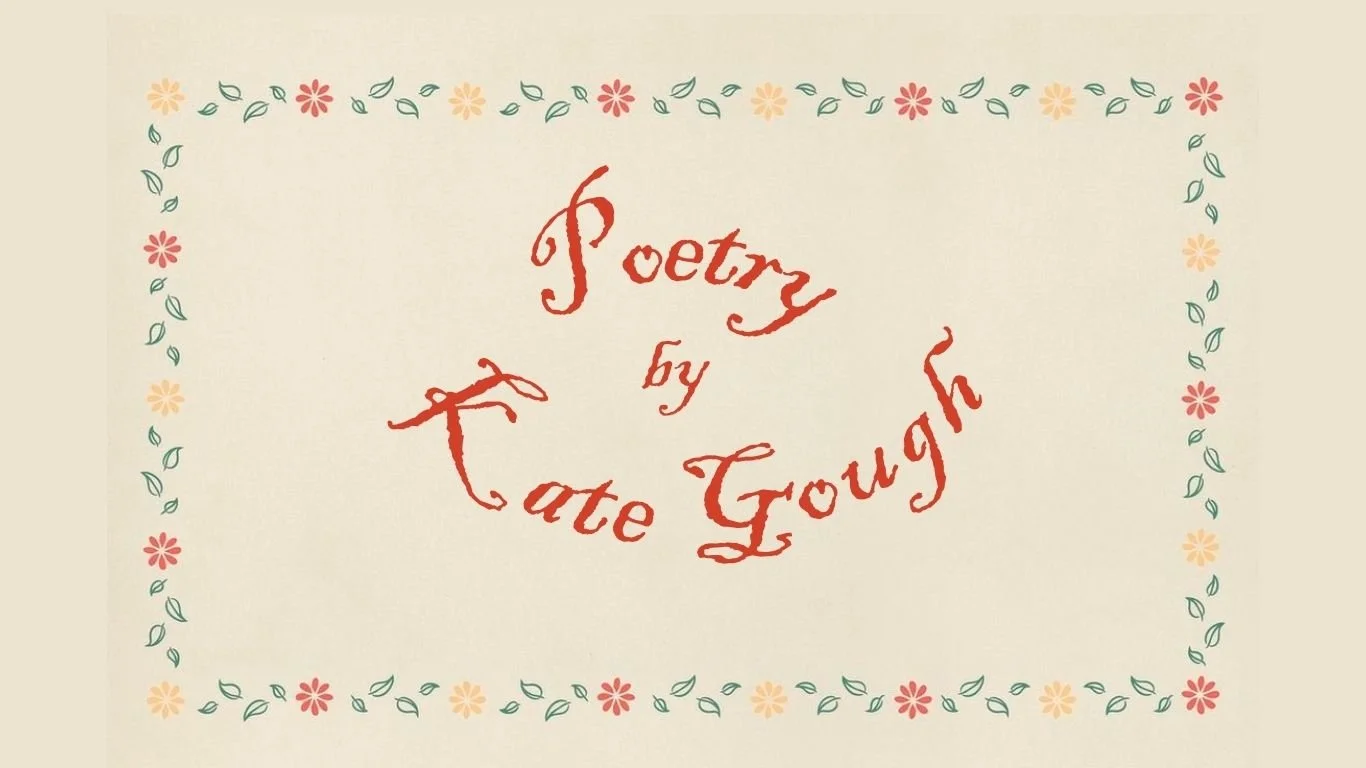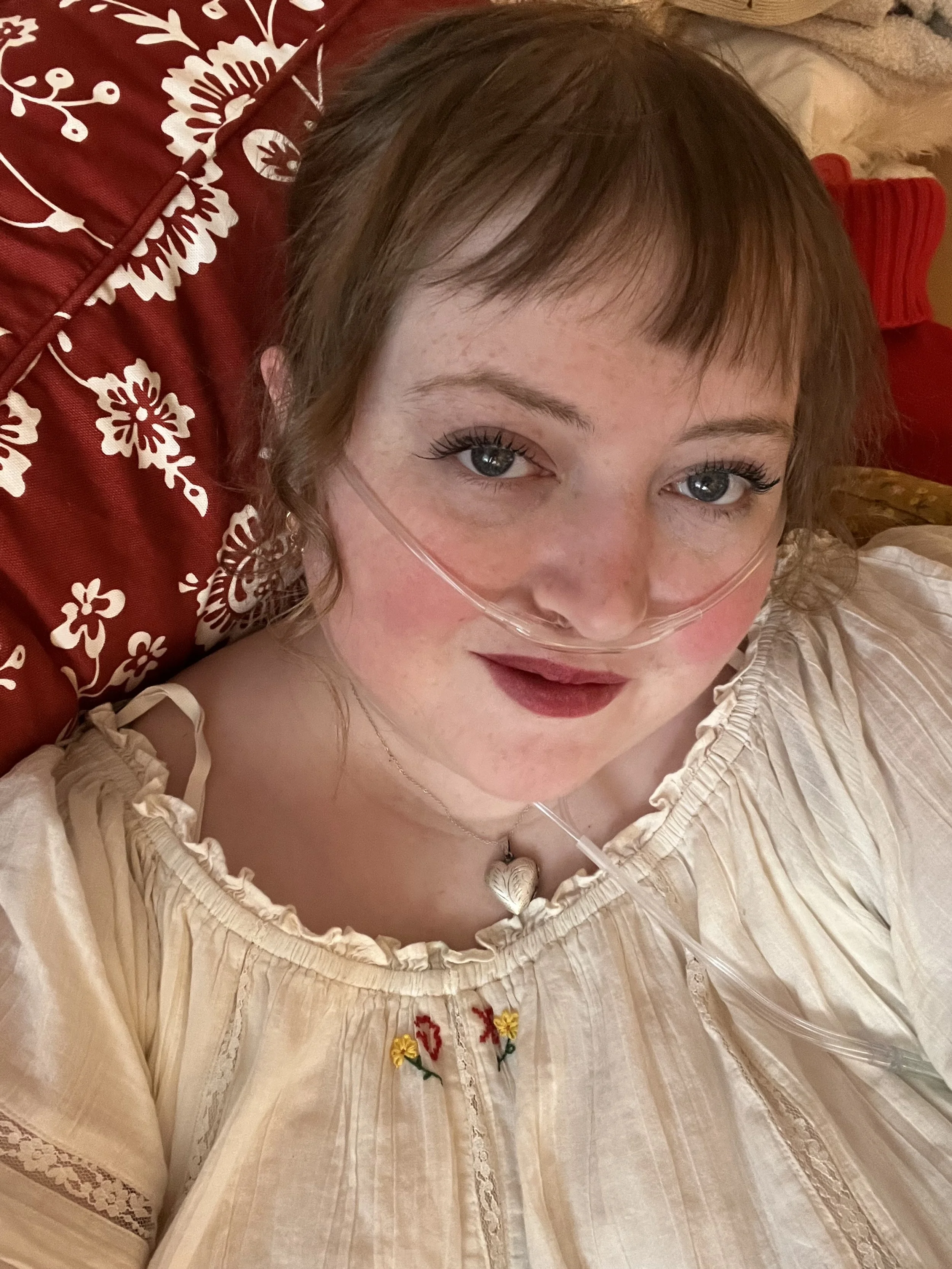A chronically ill poet paying tribute to the romantics .
My name is Kate Gough, I am a Canadian based (Treaty 7 region) poet and a member of the online poetry community. My work modernizes romantic literary sensibilities and explores recovery from trauma and living with chronic illness. Fairy tales are the lore we tell ourselves as children, we create our own reality, to cope with something bigger and darker than we can understand. The folklore we pass down reveals who we are and who we dream to be. I hope to mend the two, and notice the beauty in the humbler joys of life, whilst still coping with the ever painful present.
I have three poetry collections published by Sunday Mornings at the River, the latest being “Dollhouse Downfall”.
I have participated in a community poetry event “Escapril” six times, releasing poetry every day for a month. I have been published in several poetry anthologies, including Sunday Mornings at the River’s It's not Symptomatic, It's Systemic. I've also participated in local community projects such as Disability Pride Alberta, and in the YYC Portraits of People, as well as am a member of the Writer's Guild of Alberta's Youth Committee. I currently write for the Girlhood Project. I hope for a cozy life, usually seen drinking a cup of chamomile tea. I can be found @chamomilde on Instagram and Youtube.
Dollhouse Downfall - (2024)
Step into the poignant and provocative world of "Dollhouse Downfall: A Poetry Collection" by Kate Gough, where the fragile veneer of girlhood is peeled back to reveal the stark realities beneath. This collection delves deep into the lore of childhood fairy tales, but with a twist—here, the dolls confront their past selves, their plasticity, and the monsters of their nightmares.
Through verses that explore the loss of sincerity in a rigid, cult-like society, Gough artfully dissects the roles imposed on young girls, revealing how these narrow molds can distort our very sense of self. From haunting wolves to the guiding language of flowers, each poem weaves a complex tapestry of fear, loss, and rebellion against societal expectations.
Prepare for a journey into a poetic dollhouse—a place of conflict and beauty, where every room resonates with the echoes of battles fought over identity and autonomy. Gough’s words are both a mirror and a window, reflecting inner turmoil and looking out towards a horizon of potential transformation. "Dollhouse Downfall" is not just a collection of poetry; it's an evocative call to find oneself amidst the ruins of what we were once told to be .
The Maiden in the Tower (2023)
“The Maiden in the Tower” is the second poetry collection from Kate Gough, in which the lonely gothic dread entwines the bodies of those living with chronic illness. From the isolating tower, the maiden sings poems of life and death, as she beckons those who often take their health for granted, to look inward, and to listen to those who have lost their health. Letting go of fool’s labels, coping with the fierce storm within and without, and rising above the alienating torment of those who think they know better, or couldn’t care less, she cares dearly. In a plagued earth, she defies the rushed hustle, and in rebellion, she rests.
"Kate Gough's words are rhythmic and cutting, soft and brutal at once. She provides a stunning portrait of illness, both physical and mental; these poems are a look into the truth of how it feels to live with a disability, and the way society treats suffering - by locking it away into a tower. A very resonant and important collection.”
- Salem Paige, Author of The Third Self
Cottage in a Mirror (2022)
Kate Gough’s debut poetry book “Cottage in a Mirror” is a wistful collection of confessional poems she wrote about healing from trauma, through means of many vices and virtues. Taking inspiration from so called “tragic heroines”, fairy-tales, and the human anatomy, she explores themes of lost dreams and perpetual pain all whilst clinging to the romantic ideal of a quiet life.
"Gough’s imagery is haunting, the pages swarming with the weight of pain regarding: ice-cold feet, the pressures of virginity, a heart cut in two. Through these details, you understand what the narrator is accustomed to: detachment; like a wall is built between her and the life she wants to live. With its use of gothic femininity highlighting the narrator’s traumatic journey regarding her chronic illness, I can’t help but finish this collection and feel a sense of hopefulness."
— Chimen Kouri, author of Peach Milk





